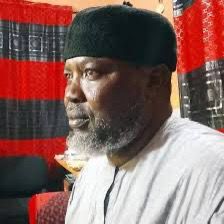From Promise to Punishment: Nigerians under Tinubu’s tax reforms, by Dr Tukur Madu Yemi
When President Bola Ahmed Tinubu assumed office in May 2023, Nigerians were promised bold reforms that would usher in economic stability and prosperity. Central to these reforms was the pledge to broaden the nation’s revenue base through tax restructuring, with government officials projecting that increased revenue would fund development, reduce dependency on oil, and place Nigeria on a sustainable economic path.
However, instead of being viewed as a progressive pathway to growth, these reforms are increasingly perceived as punitive measures that deepen the suffering of ordinary Nigerians. While taxation is a legitimate instrument for national development, its current implementation in Nigeria reflects insensitivity, inequity, and a lack of transparency.
Taxation in Theory vs. Reality
Taxation is not inherently harmful. In fact, every developed economy relies on a robust taxation system to fund public services and build national prosperity. The real question is how fairly and effectively those taxes are collected and spent.
In the Nordic countries, citizens pay among the world’s highest tax rates, yet they enjoy free healthcare, tuition-free education, efficient transportation, and strong social safety nets. The taxes are heavy, but the people see results.
In Singapore, tax revenues are visibly reinvested into affordable housing, world-class schools, and modern infrastructure. Citizens willingly comply because the government is accountable and transparent.
READ ALSO: The 2009 ASUU Agreement: A mirror of government failure, by Dr. Tukur Madu Yemi
In Nigeria, however, taxation has become oppressive introduced at the wrong time, imposed without fairness, and failing to translate into visible improvements in people’s lives.
1. Burden Without Relief
The government’s expansion of the tax net through higher excise duties, increased Value Added Tax (VAT), levies on digital services, and stricter compliance requirements collided with one of the worst economic crises in Nigeria’s history.
Nigerians are already grappling with:
Fuel subsidy removal triggered a chain reaction of rising costs across every sector.
Inflation is officially above 30%, the highest in over two decades, eroding the value of every naira.
The free fall of the naira, which recently traded at over ₦1,600/$, doubled import costs and worsened food inflation.
The impact on daily life is staggering, a bag of rice that cost ₦30,000 in early 2023 now sells for over ₦70,000 in major urban markets.
Transport fares in cities like Lagos, Abuja, and Kano have more than tripled since mid-2023.
Reports from the National Bureau of Statistics (NBS) indicate that over 133 million Nigerians are already in multidimensional poverty, and current reforms are pushing millions more into food insecurity.
Instead of offering relief, these tax measures compound poverty and make basic survival a daily battle for ordinary citizens.
2. Disproportionate Burden on the Poor
One of the most glaring flaws in the reforms is that they target low and middle-income earners rather than the wealthy elite and multinational corporations who dominate Nigeria’s economy.
Indirect taxes such as VAT and excise duties unfairly punish the poor, who already spend over 70% of their income on food and basic necessities (World Bank, 2023).
READ ALSO: Debt and Despair: Why Nigeria must rethink its borrowing culture, by Dr Tukur Madu Yemi
Consider
The market woman in Gombe or Kano pays VAT on her modest sales while also battling rising transport and storage costs.
The Keke Napep rider, who now spends nearly half his daily earnings on inflated fuel costs and multiple levies imposed by local authorities.
Meanwhile, many elites and large corporations exploit legal loopholes, enjoy tax holidays, or evade taxes altogether. According to the Federal Inland Revenue Service (FIRS), Nigeria loses over $2.9 billion annually to tax evasion by multinationals and wealthy individuals.
This exposes the reforms not as a genuine restructuring of the tax system, but as an unjust transfer of burden to those least able to bear it.
3. Where is the Money Going?
Nigerians are not opposed to paying taxes. What they reject is paying into a bottomless pit of corruption and waste.
When President Tinubu announced the removal of fuel subsidy in May 2023, he assured the nation that the savings—estimated at over ₦7 trillion annually would be redirected into capital projects. We were promised new schools, modern hospitals, better roads, and affordable public transportation.
Yet, more than two years later, there is no transparent account of these funds. Nigerians see no new projects, no relief in services, and no evidence of improved infrastructure. Instead, what they observe is extravagant government spending on convoys, political appointments, and frequent foreign trips.
READ ALSO: Aminu Dantata: A life of enterprise, faith, and lasting legacy, by Dr. Tukur Madu Yemi
A bloated political class is consuming scarce resources while the citizens endure untold hardship.
An economy where the cost of governance remains one of the highest in the world, draining funds that should be used for development.
If subsidy savings and tax revenues were properly invested, Nigerians might embrace additional taxes as part of a shared sacrifice. But in the absence of accountability, citizens feel betrayed and deceived.
4. Poor Timing and Harsh Implementation
Tax reforms require sensitivity and proper sequencing, especially in fragile economies. Unfortunately, the Tinubu administration has chosen to enforce aggressive measures during Nigeria’s worst cost-of-living crisis in decades.
Consider the realities:
Inflation at 30%+ has wiped out purchasing power.
Unemployment above 33% leaves millions of graduates hopeless.
The minimum wage remains ₦30,000, while the average cost of living for a family of five now exceeds ₦120,000 monthly.
Instead of cushioning these challenges with wage adjustments, food subsidies, or targeted relief, the government has adopted a “bleed first, wait for relief later” model. This is not only economically reckless but also socially dangerous, as frustration grows across the country.
Rethinking the Reform Agenda
Nigeria indeed requires tax reforms, but they must be anchored on fairness, transparency, and inclusivity. A sustainable taxation system should:
1. Adopt progressive taxation: Ensure that the wealthy, oil companies, and multinational corporations contribute their fair share, instead of squeezing the poor.
2. Demonstrate transparency in revenue use: Publish quarterly reports on how tax and subsidy savings are spent, with independent verification. Funds should be reinvested visibly into infrastructure, healthcare, education, and social welfare, similar to how the Petroleum Trust Fund (PTF) operated in the 1990s under General Sani Abacha.
3. Introduce economic cushioning measures: Raise the minimum wage, subsidise essential goods, and provide grants for small businesses before introducing new levies.
4. Cut the cost of governance: Nigeria’s political class is among the most expensive in the world. Reducing excess allowances, luxury spending, and redundant appointments would free resources and restore public trust.
Conclusion
Until such principles are adopted, Nigerians will continue to interpret Tinubu’s tax reforms not as economic necessity but as punishment inflicted on an already vulnerable population.
A government that truly seeks prosperity must not crush its citizens under endless levies. Instead, it should prioritise equity, transparency, and humane timing, transforming taxation from a burden into a tool for shared progress.
Nigerians deserve better, not policies that make survival impossible, but reforms that give every citizen a fair chance to live with dignity.
Dr Tukur Madu Yemi writes from the
Federal University of Kashere, Gombe.
Email: alhajitukur68@gmail.com | 08066289200 / 09024252525
Follow the Neptune Prime channel on WhatsApp:
Do you have breaking news, interview request, opinion, suggestion, or want your event covered? Email us at neptuneprime2233@gmail.com





